|
As a foster parent, I know firsthand how difficult and emotionally taxing it can be to open your home to children in need. It's a rewarding experience, of course, but it can also be incredibly challenging. That's why I'm a strong advocate for therapy as a way of helping foster parents cope with the unique demands of this role. Here's why I think therapy is so important for those who have taken on the responsibility of caring for children in need.
Building Self-Awareness As a foster parent, there are certain aspects of my job that can be emotionally draining if I don't take time out for self-care. In order to continue doing this work effectively and compassionately, I've found it important to practice self-awareness by consistently reflecting on my thoughts and feelings about my role as a foster parent in therapy sessions. My therapist has been invaluable in helping me understand the complex emotions I'm experiencing both as a result of being involved in the foster care system and through my interactions with the children in my care. Your therapist can help you gain insight into your individual triggers so you can better prepare yourself when handling difficult situations with your child, other family members and even challenging CPS workers, bio parents or other members of your child's village. Creating Healthy Boundaries It's especially important for foster parents to create healthy boundaries between themselves and their child while still providing unconditional love and support whenever possible. This type of boundary-setting is often difficult because you want to provide your child with every opportunity you can while also protecting yourself from any potential harm or distress caused by their behavior or experiences outside of your home. By engaging in regular therapy sessions, you'll be able to unpack what types of boundaries are appropriate for your specific situation so that you can set limits without creating unnecessary conflict or tension between yourself and the child(ren) in your care. Teaching Coping Skills For many foster children, trauma and attachment difficulties are an ongoing reality. It's not uncommon for these kids to have trouble forming attachments or controlling their emotions due to past experiences. Through my own therapy, I learn coping skills that I can teach my foster children that can help them regulate their emotions given their trauma. For instance, my therapist taught me to use this feeling wheel when I needed to dig deeper into my emotions; It's been so helpful that I've printed a copy out and hung it on our refrigerator, encouraging all families members to look at it when they need to evaluate their emotions. While there will always be challenges associated with caring for children who have experienced trauma or neglect, it's important not to let those challenges overwhelm you or prevent you from providing the best possible care possible for these kids. That’s why therapy is such an essential part of being a successful foster parent—it helps us gain insight into our own experiences while developing healthy tools necessary for managing our emotions when faced with difficult situations involving our child. Ultimately, engaging in regular therapeutic sessions helps us become more aware and intentional about how we show up as caregivers each day so that we can provide stability and security within our homes no matter what happens outside them! Get a free week of therapy here (affiliate link). If you are a former foster youth, you may have questions about how to find a doctor or hospital that is in your insurance network. Navigating the health care system can be confusing and overwhelming, but it doesn’t have to be. In this blog post, we will provide you with tips on how to locate a medical provider that accepts your insurance.
Step 1: Check Your Insurance Card The first step in finding a doctor or hospital that is in your insurance network is to check your insurance card. This card will typically contain information on the company that provides your coverage, the type of plan you have, and contact information for customer service. It may also include a list of hospitals and doctors that accept your plan. Make sure to review this list carefully as it could save you time and money when seeking medical care. Step 2: Connect with Your Insurance Provider If the list of providers included with your insurance card does not seem comprehensive enough, don’t worry—you can always connect with your insurance provider for more detailed information. Call the customer service number on your card, or visit their member website. When you call them up, make sure to ask any questions you may have about which hospitals and doctors accept your plan as well as what services they offer. The customer service representative should be able to provide you with an updated list of providers who are within the network so that you can make the best decision for yourself and any dependents. Their online tool will likely be able to guide you to providers as well. Step 3: Check Online Resources In addition to contacting your insurance provider directly, there are also online resources available that can help you quickly find a doctor or hospital in your network. For example, many websites allow users to search by zip code for nearby providers who accept their specific type of plan. This is an especially helpful tool if you need to find a specialist or if there are no providers close by. IMPORTANT NOTE: If you go this route, be sure to ask them if they are "in-network" with your specific insurance plan. "Accepting" your plan but being "out-of-network" will likely increase your costs. Locating an appropriate doctor or hospital within an insurance network can be tricky but certainly not impossible! By following these three steps—check your insurance card, contact customer service at the company providing coverage, and use online resources—you will be well on your way to finding quality health care providers who fit your needs! With this knowledge under your belt, all that’s left is taking advantage of it! Good luck! As foster parents, understanding how our foster children’s brains work can be incredibly helpful and informative. Dr. Mona Delahooke, a leading expert in the field of trauma and development, explains that the brain of a child who has been through trauma is essentially a hyper-sensitive prediction machine. This means that their brain is constantly on alert for potential danger, even when there isn’t any. In this blog post, we will discuss why foster children’s brains work as prediction machines and what we can do to help them develop and process predictions more effectively.
Why Foster Children's Brains Function as Hyper-Sensitive Prediction Machines Foster children often lack the secure attachment relationships with caregivers that are necessary for healthy development and thus may not have access to a secure base from which to explore the world without fear or anxiety. To cope, their brains begin trying to anticipate all potential danger. Their brains end up being hyper-sensitive prediction machines, constantly trying to understand what is happening next and feeling betrayed when it doesn't go as expected. This means that they may exhibit behavior such as hiding or being overly defensive when there isn’t any real threat present. How We Can Help Foster Children Process Predictions More Effectively The good news is that we can help foster children process predictions more effectively. Here's how: 1. First and foremost, work to build attachment. Letting the child know you're someone they can trust will be key to helping them know they don't have to be on heightened alert at all times. While this is critical, unfortunately, this is also the strategy that takes the longest (but the tips below will also help you get here). 2. Validate feelings and show empathy. When a child says "no" to a simple request, recognize this isn't about defiance or a personal attack on you. Your simple request may have made their prediction machine scream "ERROR" which triggered their anxiety and stress and made them feel the need to verbalize a "no". Taking a look at what you may have indirectly been asking them to do or stop doing will help you see it from their view. For example, if they were playing with toys and you asked them to stop and pick up their clothes, they likely said "no" because they were having so much fun with their toys and expected to continue to play without interruption. You could say "I know you're playing with your toys right now and having so much fun. As soon as you're done putting your clothes away, you'll get to continue playing and I know it's going to be awesome when you do." 3. Implement routines. Routines are hugely powerful in making the unfamiliar familiar. The first few weeks with a placement, you should try your best to implement routine into different parts of your family's day. This will help your foster child make predictions with at least a bit of accuracy. 4. Tell them what to expect as often as possible. Since following routines isn't always feasible, explain to them what's coming next. If they can read, during the first month or two, write out what their week will entail. If they can't read, verbally tell them each morning what they can expect. Often in those first few days, they'll still ask you time after time what the plan is even if you've told them; as hard as it is to repeat yourself and as much as it feels like they must not be listening, understand that is their "prediction machine" at work. 5. Give time-based warnings and use timers. For kids as young as 2, timers are an effective way to let them know what to expect and approximately when they can expect it. If a child is having a hard time sharing toys, let them know you'll be setting a timer and when it goes off they have to share (and use it again to demonstrate their next turn with the toy). If they have to stop watching their show to take a shower, tell them you're setting a timer for 10 minutes (and try to give them verbal warnings throughout those 10 minutes). The first few times may be difficult, but kids often catch on quickly, especially with a distinct sound of a timer. 6. Teach them coping skills so they can regulate their own emotions. First, teach your foster child to identify different emotions. Then, teach self-regulation strategies such as deep breathing, progressive muscle relaxation, mindfulness exercises, and listening to a calming song. Model it in your own life often by saying things like "I'm feeling frustrated right now. I think I'm going to take 3 deep breathes to calm down." Foster children's brains often function as prediction machines due to the psychological trauma they have experienced. This can cause them to be overly defensive or anxious even when there is no real threat present since their brains are constantly trying to anticipate danger. Fortunately, foster parents can help foster children process predictions more effectively by providing consistency and structure while also building trust.
So you’ve completed the foster care process and you’re now waiting on your first foster placement. You may be feeling a mix of emotions, from excitement and anticipation to fear and anxiety. I remember feeling so frustrated knowing so many kids were in foster care yet we hadn't received a call immediately after being licensed (I knew then it was a bit of a selfish view since my concerns were about my timeline and my needs, but the feelings were still real). Whatever it is that you’re feeling, here are some tips to help you stay positive while you wait.
Continue Learning about Foster Care While a lot of people think that once they become a licensed foster parent, their education is complete; that couldn’t be farther from the truth! There is always something new to learn when it comes to foster care and parenting in general. Continue reading books or articles written by experts in the field. Put together your first-week check-list. Create a loose plan for bonding. Taking the time to continue learning and planning will help prepare you for when your first foster placement arrives. Learn More about Trauma-Informed Care and Trust-Based Relational Intervention Fostering involves taking in children who have experienced trauma, which means that it is essential to have an understanding of trauma-informed care. While you wait for your first placement, take the time to familiarize yourself with what it means to be trauma-informed and ways to help kids who have experience trauma. One of the most well-respected support strategies for children who have experienced trauma is Trust Based Regional Intervention (TBRI). Seek out articles, watch documentaries or take classes related to trauma-informed parenting and TBRI so that when your foster child arrives, you are prepared with the necessary knowledge and skillset. Stay Connected with the Foster Care Community You’re not alone in this journey. Take the time to connect with other foster parents in your area. This can be done through online forums or even local meetups. Not only will connecting with other families help reduce feelings of loneliness during this time, but it will also give you an opportunity to gain insight from others who have gone through what you are about to experience. Take Care of Yourself (and Your Family) Waiting on a child can cause stress and anxiety, so it's important to take care of yourself during this period. Go enjoy walks in the park or get exercise in other ways. If you already have children in the home, do a favorite activity to keep everyone busy. If you're fostering with a spouse or partner, discuss your feelings with them (do not try to handle it on your own) and ask them to share their feelings about the upcoming changes. And as difficult as it may be, try to get rest! If needed, seek therapy to help you handle your anxiety and anticipation; a counselor can give you tools to cope with the stress (which will come in handy when your foster child arrives). The waiting period before getting your first foster placement can feel like an eternity but following these simple steps can lead to a smoother transition into becoming a foster parent. From educating yourself on trauma-based behaviors to taking care of yourself, these tips will help ensure that once the day finally arrives, everything will go as smoothly as possible! Good luck! As foster parents, you provide a loving home to children in need. Having a foster sibling can be an incredibly meaningful and rewarding experience for your biological and adoptive children, but it can also be difficult for them when the foster child leaves. It is important to acknowledge any emotions that come up for your permanent children during this time and support them as much as possible. Here are some tips for helping your biological or adoptive children adjust when a foster child leaves.
The first thing to remember is that while it may be exciting and positive for the foster child to be reunited with their biological family, it can be very difficult on your permanent children who has been used to having another person in their home as part of their family. No matter how close or distant the bond was between them, there are often feelings of mourning and loss when someone goes away—especially if they have been part of the family for some time. When preparing for the departure of a foster child from your home, it’s important to focus on helping your biological or adoptive children manage their emotions surrounding the transition before the departure. Talk openly about what is happening and allow your permanent children an opportunity to express themselves in whatever way makes sense for them—through conversation, art, music, dance—whatever will help them process their feelings. Reassure them that it’s normal and ok to feel sad or scared about this change and recognize this as an opportunity for growth. Encourage them without putting too much pressure on them; let them know you understand why they feel upset but also celebrate positive memories your family made with the foster child. It’s also essential to keep communication open with your biological and adoptive children after the foster child has left; once things settle down at home talk with them about how they are feeling and provide continued love and reassurance throughout this process so they don't feel like they need to internalize their emotions or worry about burdening you with them. You might also consider attending therapy together or talking with other families who have gone through similar experiences so that everyone can better understand what healthy transitions look like A foster child leaving your home can be emotionally demanding for all parties involved; however, it provides an excellent opportunity to grow closer together as a family by providing open communication channels and honest conversations about how everyone is feeling during this time. By understanding each individual’s unique experience with the transition, you can create space for healing within your family dynamic and set yourselves up for successful transitions in the future! |
AuthorI'm a foster mom, bio mom, working mom, special needs mom, busy mom. I'm also married to my high school sweetheart, I'm a proud 23-year childhood cancer survivor, and I'm passionate about serving my community. More from FosterMamaArchives
March 2023
Categories
All
|

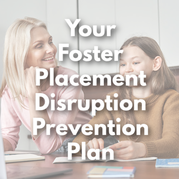
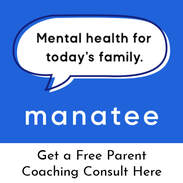


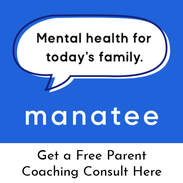
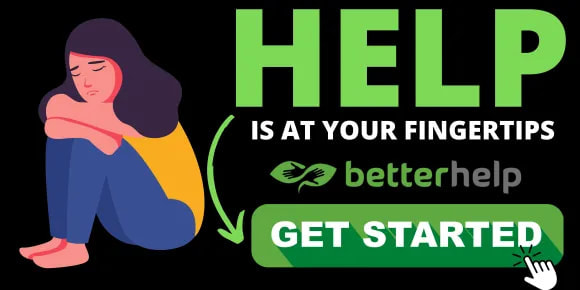
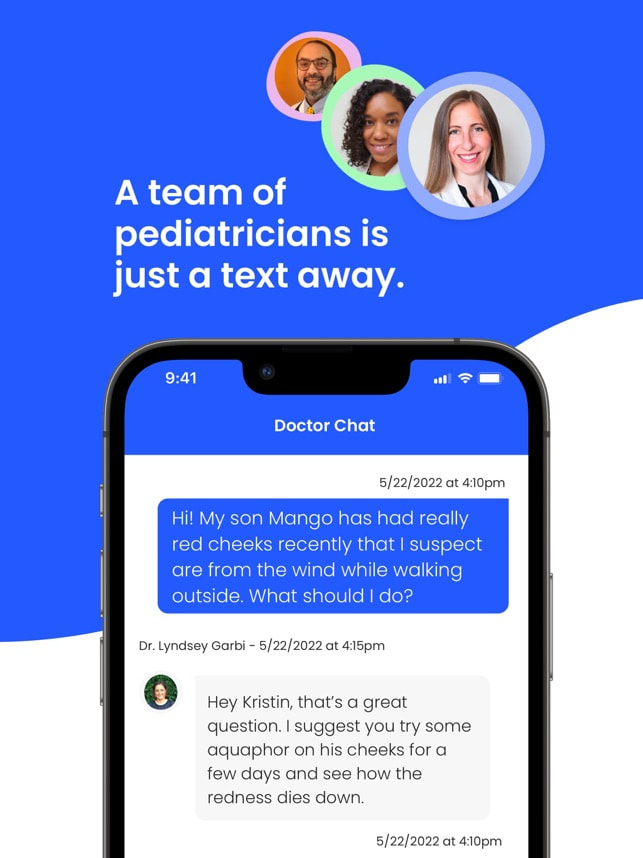
 RSS Feed
RSS Feed